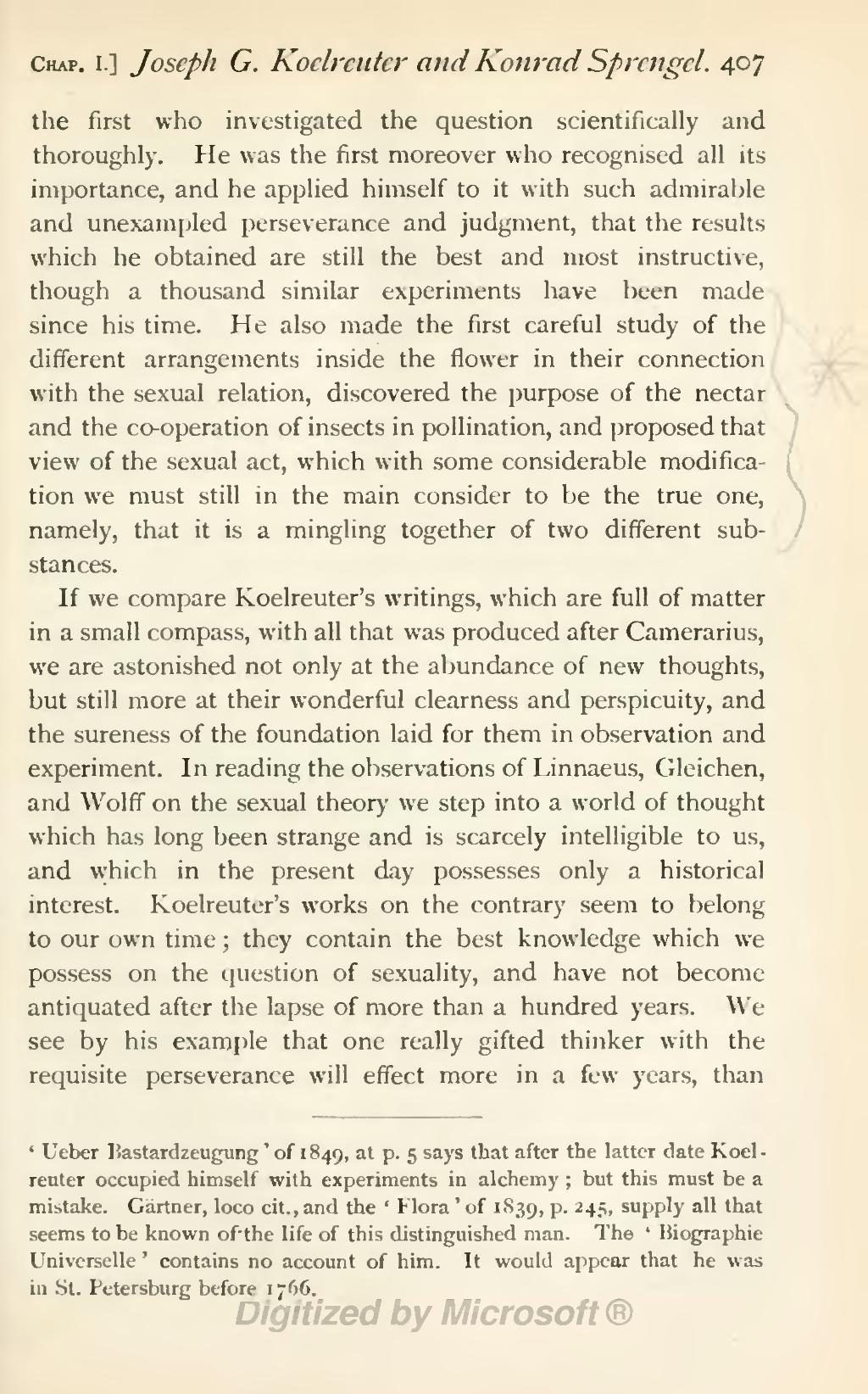the first who investigated the question scientifically and
thoroughly. He was the first moreover who recognised all its
importance, and he applied himself to it with such admirable
and unexampled perseverance and judgment, that the results
which he obtained are still the best and most instructive,
though a thousand similar experiments have been made
since his time. He also made the first careful study of the
different arrangements inside the flower in their connection
with the sexual relation, discovered the purpose of the nectar
and the co-operation of insects in pollination, and proposed that
view of the sexual act, which with some considerable modification we must still in the main consider to be the true one,
namely, that it is a mingling together of two different substances.
If we compare Koelreuter's writings, which are full of matter in a small compass, with all that was produced after Camerarius, we are astonished not only at the abundance of new thoughts, but still more at their wonderful clearness and perspicuity, and the sureness of the foundation laid for them in observation and experiment. In reading the observations of Linnaeus, Gleichen, and Wolff on the sexual theory we step into a world of thought which has long been strange and is scarcely intelligible to us, and which in the present day possesses only a historical interest. Koelreuter's works on the contrary seem to belong to our own time; they contain the best knowledge which we possess on the question of sexuality, and have not become antiquated after the lapse of more than a hundred years. We see by his example that one really gifted thinker with the requisite perseverance will effect more in a few years, than
'Ueber Bastardzeugung' of 1849, at p. 5 says that after the latter date Koelreuter occupied himself with experiments in alchemy; but this must be a mistake. Gartner, loco cit., and the 'Flora' of 1839, p. 245, supply all that seems to be known of'the life of this distinguished man. The 'Biographie Universelle' contains no account of him. It would appear that he was in St. Petersburg before 1766.
